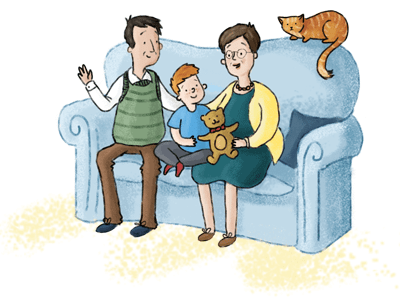
One of my guilty pleasures has been the TV series Don’t Tell the Bride, says Judy Bell, a family law specialist at Bromleys.
Couples are given money to spend on their weddings, but have to be apart for three weeks without contact and the groom must organise every aspect of the big day as a surprise for the bride.
You get to see plenty of men and women who have lived together for years, sometimes having had children, before tying the knot. It seems to be the trend.
A recurring theme in the divorce cases we handle at Bromleys is that couples often fail to realise a period of cohabitation before they wed adds to the length of the marriage in legal terms, as long as it was seamless and with no break at any stage.
A period of seamless cohabitation will result in more substantial claims when it comes to dividing the assets.
For example, say a couple split after two years of marriage. In law, this would be regarded as a ‘short marriage’ and the divorce settlement would be based upon that consideration.
The courts almost always deal with these cases in terms of the contribution made by each party during the marriage, with the aim of returning them to their previous positions.
However, had the couple lived together seamlessly for 10 years before marrying, the courts would classify this as a 12-year marriage and would apply a different set of criteria.
What they had built up over those dozen years would be regarded as having been achieved through a joint enterprise.
A common scenario is where the man studied at university to get good qualifications and a successful career, and his partner supported him by taking one or more jobs to help them make ends meet.
They subsequently married, he qualified and got a lucrative job or set up a business, while she brought up their children.
If this relationship was one of seamless cohabitation culminating in marriage, the whole period would be taken into account by the courts when assessing a settlement.
The woman’s contribution as a full-time mother and housewife would have been vital in enabling her husband to earn a greater income, and she would be entitled to share in this.
A wife who supported her partner (later her husband) by staying at home while he built a successful business would therefore be entitled to a share of the company’s assets.
The start of a new year is the busiest time of year for divorces. As more and more cases involve couples who lived together before marrying, the subject of seamless cohabitation increasingly forms an important aspect of modern divorce settlements.
How we can help
Should you need expert legal advice regarding any of the above or indeed any other family matters, please contact us on 0161 330 6821 or fill in our online form. Alternatively, you can email us on bromleys@bromleys.co.uk and we’ll call you back.
The contents of this article are intended for general information purposes only and shall not be deemed to be, or constitute legal advice. We cannot accept responsibility for any loss as a result of acts or omissions taken in respect of this article.











